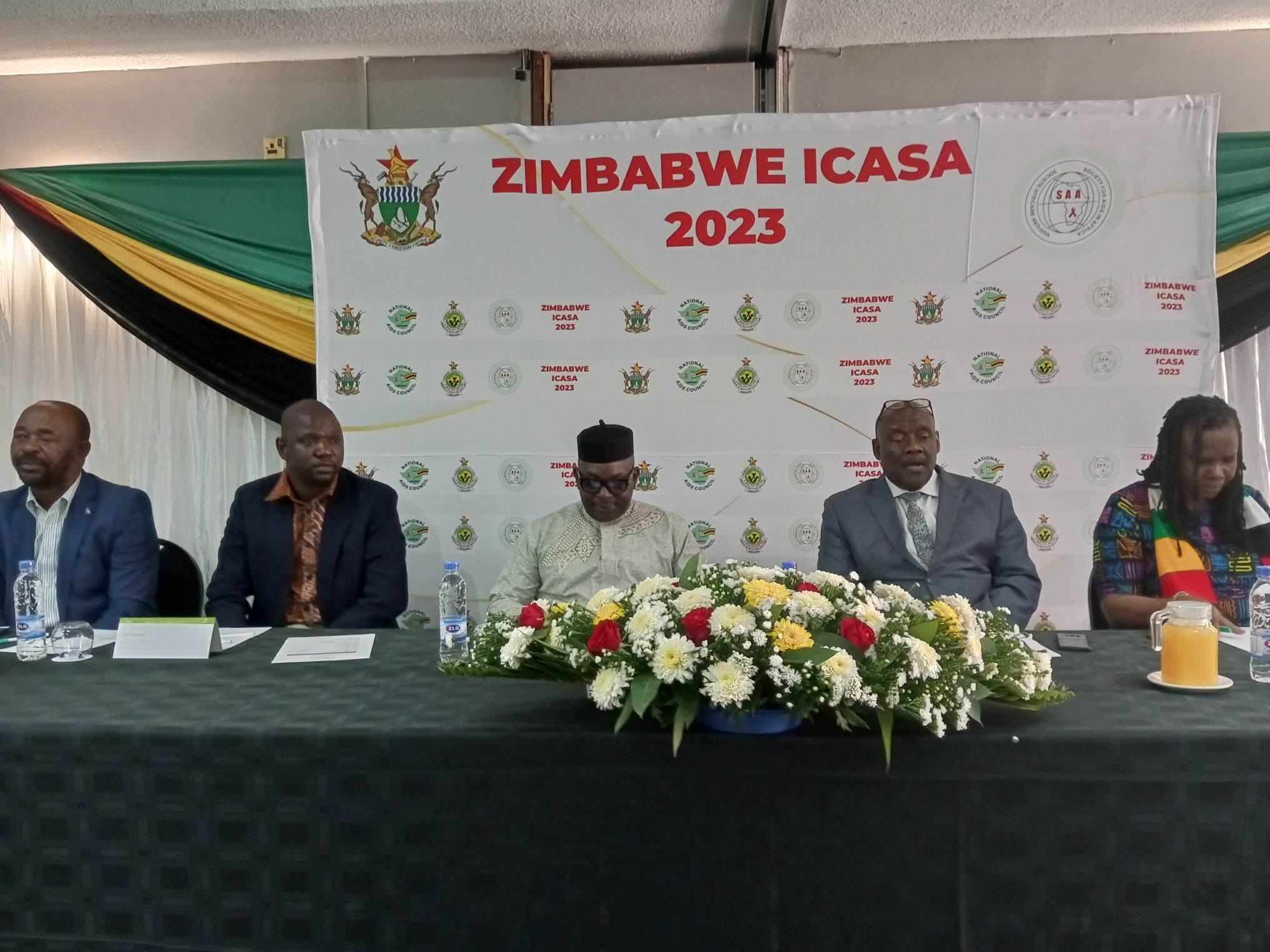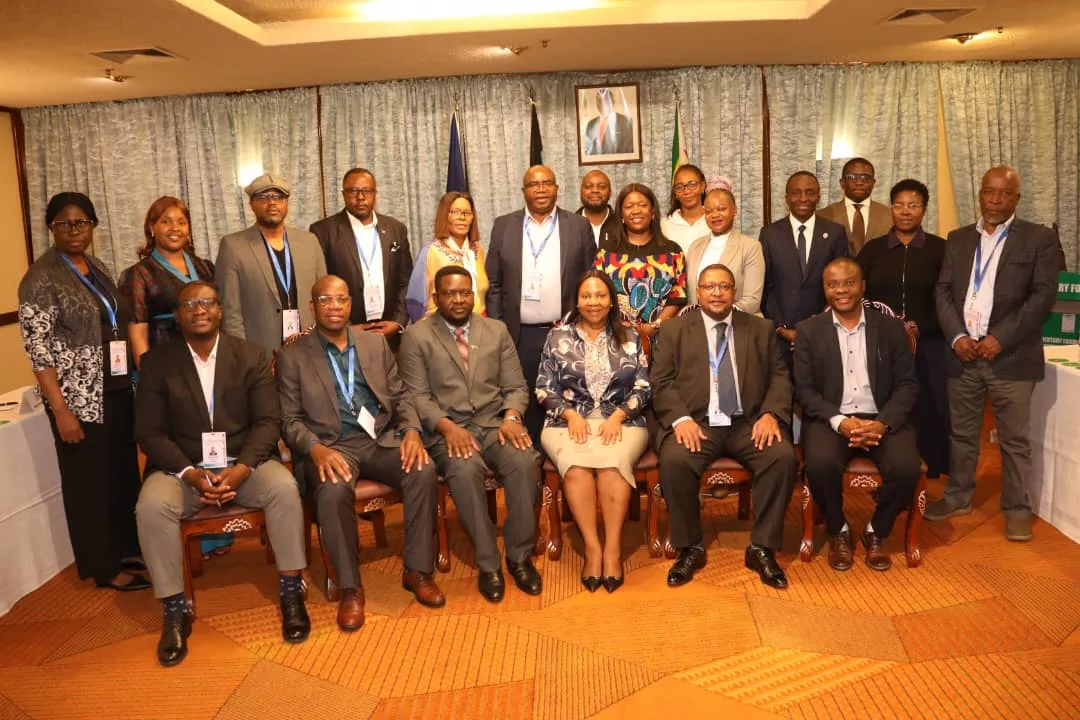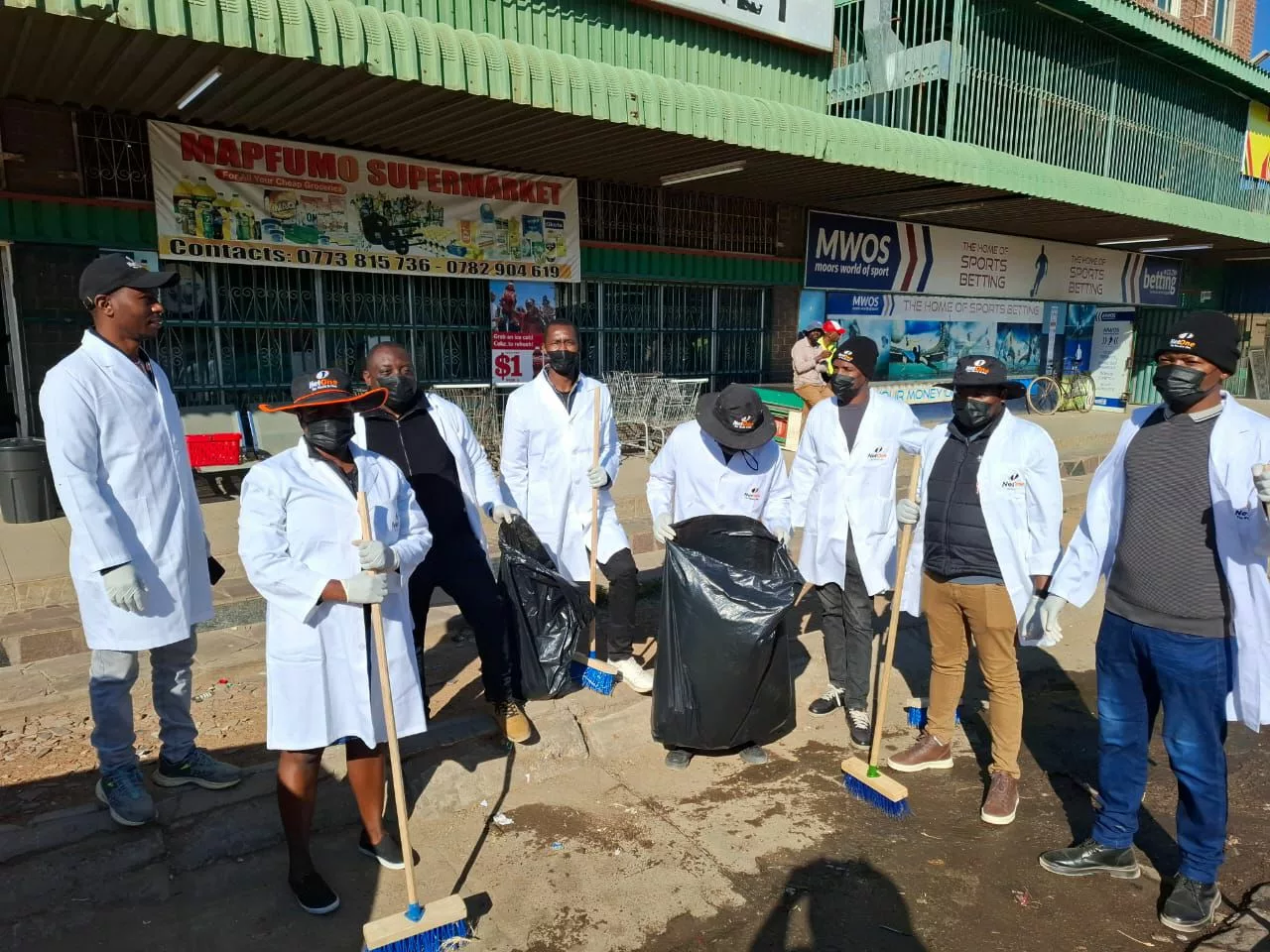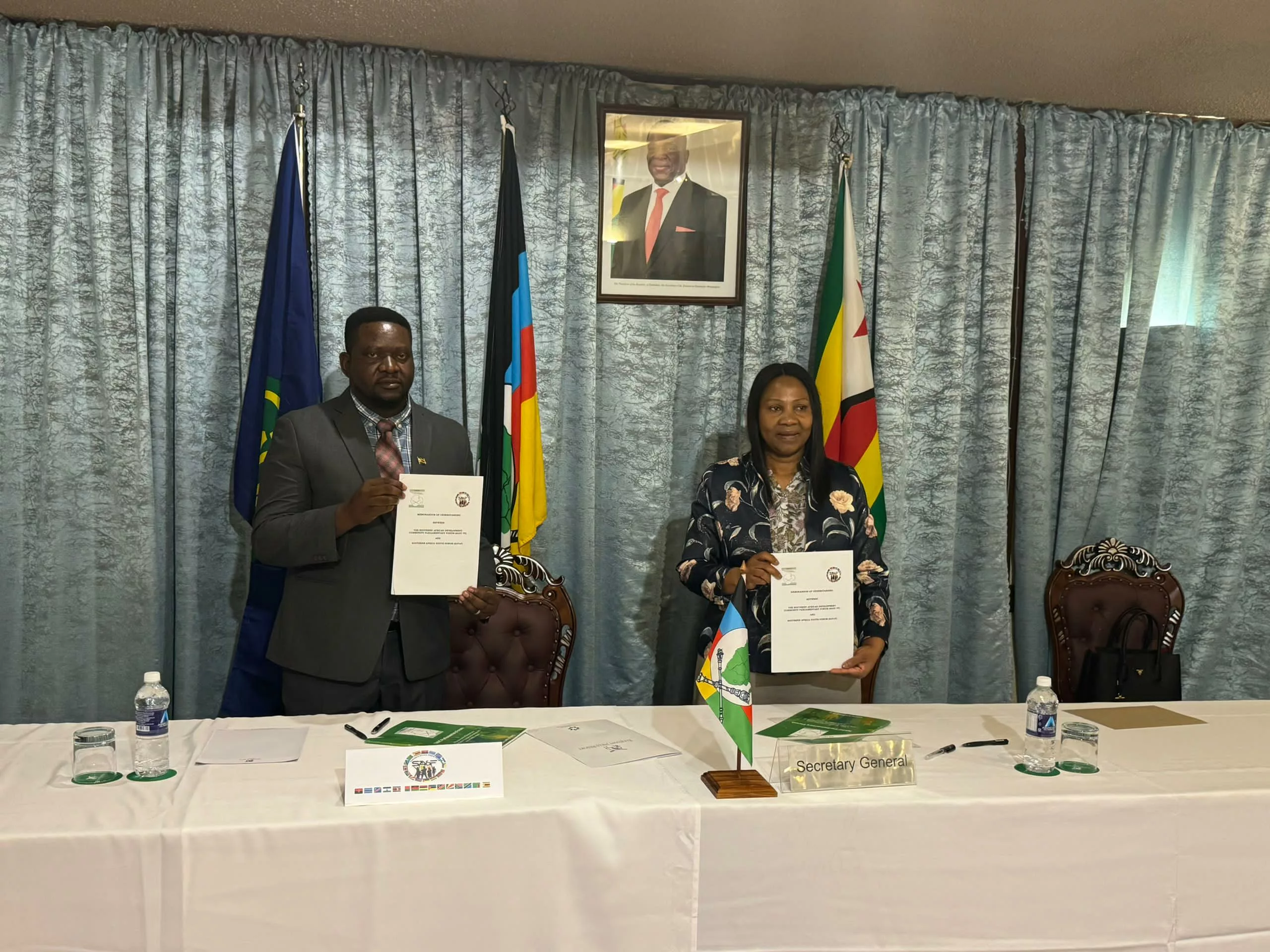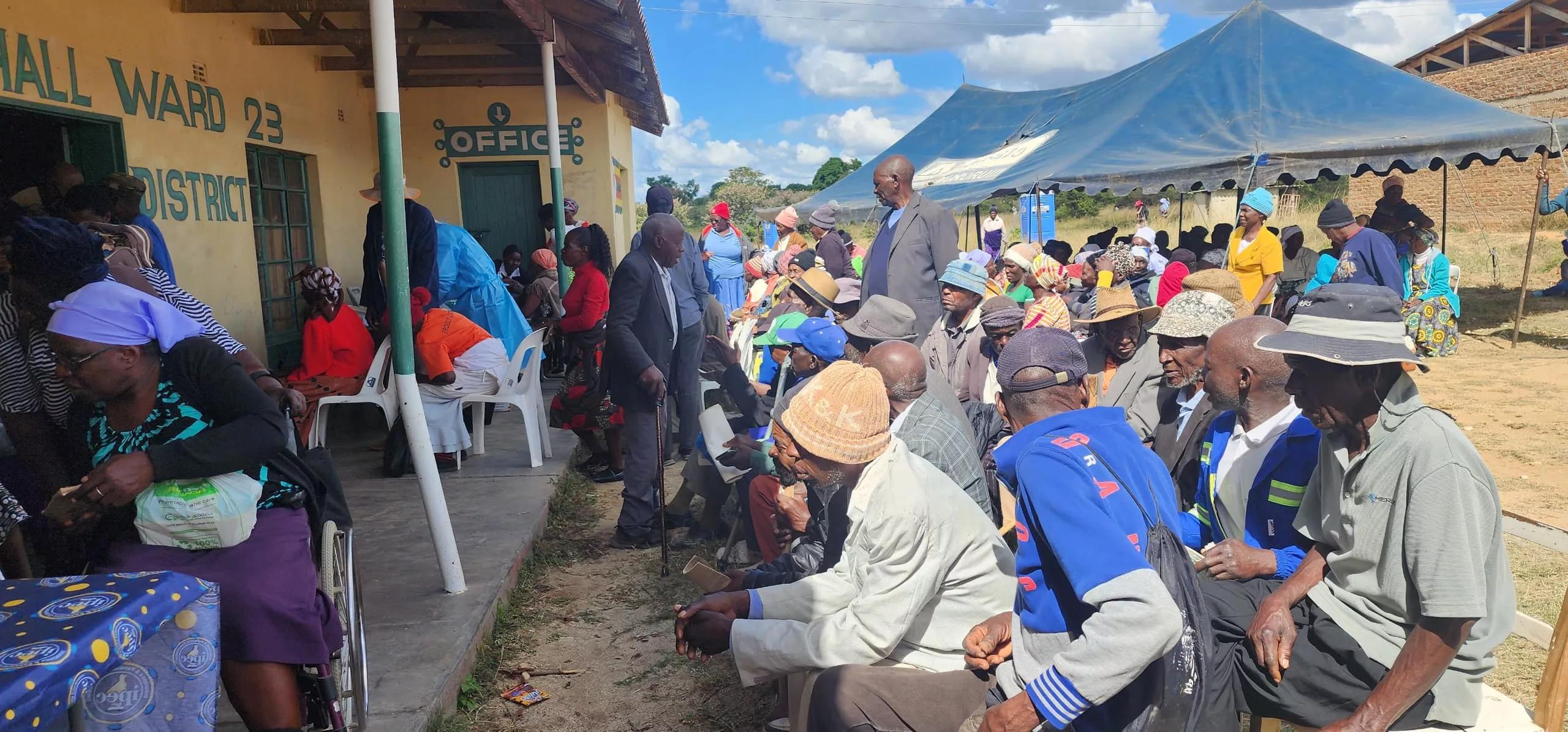|
Getting your Trinity Audio player ready...
|
Dr. David Parirenyatwa, the President of the Society for AIDS in Africa has said that the International Conference on AIDS and STIs in Africa (ICASA) 2023 will focus on other epidemics and morbidities like cancer TB, malaria, and other emerging pandemics including COVID-19.
He made the remarks at a Harare hotel today during the official unveiling of the ICASA 2023 following the signing ceremony of the memorandum of understanding (MOU) that was done at the State House yesterday.
“ICASA 2023 will encompass TB, malaria, and other emerging pandemics including COVID-19. I must also say that cancer is now included in the fight against HIV and AIDS in pursuit of inclusivity. In the recent past, the focus was on COVID-19 but there is a need to refocus on HIV to achieve the goal of ending AIDS by 2030,” Dr. Parirenyatwa said.
ICASA 2023 will spotlight funding for HIV with the National AIDS Council (NAC) trust fund positioned as the main source of local funding to address the epidemic. Discussions will also be based on how science can be leveraged to address HIV, TB, and malaria.
Stakeholders were encouraged to come up with abstracts on possible thematic areas. The focus will be on promoting leadership in the fight against these diseases. ICASA 2023 will have a particular focus on how communities are contributing towards ending AIDS by 2030. At least 12 000 delegates, with a greater representation from the communities, are expected to attend ICASA.
In 2015, self-testing was launched at the ICASA meeting in Harare and this is still being implemented. Dr. Parirenyatwa said self-testing should cascade to COVID-19 and other diseases. In 1985, the first case of HIV was discovered in Zimbabwe and the country continues to fight the disease.
Dr. Owen Mugurungi, the Director of the AIDS and TB Unit in the Ministry of Health said Zimbabwe has a reason to smile. He paid tribute to support from UNAIDS Zimbabwe.
Dr. Mugurungi said the impact of HIV and AIDS is felt far beyond and the burden is high in Africa.
“Recently, the COVID-19 pandemic affected the response to current and emerging epidemics. We are grateful for SAA to award the 22nd edition of ICASA to Zimbabwe. The last edition was in Durban but was attended virtually. The 2023 edition will be a hybrid one (meeting in person and virtually). We are motivated and recommitted to fighting HIV and other epidemics,” Dr. Mugurungi said.
Sofia Mukasa Monico, UNAIDS Zimbabwe Country Director expressed her appreciation and pleasure for the privilege to be part of the delegation and committee that is organising ICASA 2023 to be hosted in Zimbabwe.
“Zimbabwe is a trailblazer in HIV response as witnessed by the successful hosting of the conference in 2015 and can do wonders in 2023. At this meeting, Zimbabwe is represented from all walks of life from community-based organisations, the media, the entertainment world, musicians, the hospitality sector, Parliament, and key and vulnerable populations who have come together in one room.
“Thank you National AIDS Council for mobilising everyone. UNAIDS pledges support for Zimbabwe in hosting ICASA. We pledge technical assistance and mobilising communities to be involved and engaged in ICASA. We should all fight to address inequalities hindering ending AIDS by 2030. Zimbabwe is one of the forerunners in achieving 95-95-95 targets. It is on 95, 6 percent of people who know their status, 95,4 percent on treatment, and on 83 percent of those virally suppressed,” Monico said.
Luc Armand Bodea, the ICASA Director/SAA Coordinator said the community is the key to any ICASA resolution. He gave a history of the way Zimbabwe won the bid. Today, while officially unveiling the upcoming program, he said that the schedule was generally from 7 am to 8 pm in previous ones, since ICASA 2023 is coming post-covid 19, it will be from 7 am to 4 pm to give participants room to see Zimbabwe. He announced calls for submissions for designers and said the ICASA logo winner will get a full scholarship to attend the conference.
Clarence Mademutsa, who was representing people living with HIV relishes the opportunity for Zimbabwe to host ICASA.
“The ICASA 2023 gives Zimbabwe a second bite of the cherry. There will be an opportunity for the country to showcase its success. So far, the two 95s have been achieved. It’s also an opportunity to reflect, see, and identify gaps. The 83 percent on viral load suppression should be increased. There is a need to spotlight progress on children and adolescents living with HIV (0-19 years). It’s also an opportunity to acquire the best medicines available for PLHIV. As a pacesetter, Zimbabwe is the first country to approve long-acting injectable cabotegravir,” Mademutsa said.
Walter Chakuzira from the National Conventions Bureau said the Zimbabwe Tourism Authority is ready and committed to working with all stakeholders in making ICASA 2023 a success.
“Counting on the 2015 experience where we had only four months to prepare, we can do better in 2023. As soon as dates are known, delegates are invited to tour Destination Zimbabwe before and after the conference. We hope to surpass the 2015 delegate participation since there is more time,” he said.
Wilson Box, who was representing key and vulnerable populations said the community was crucial in the bidding process and expects the conference to take up their concerns on board.


